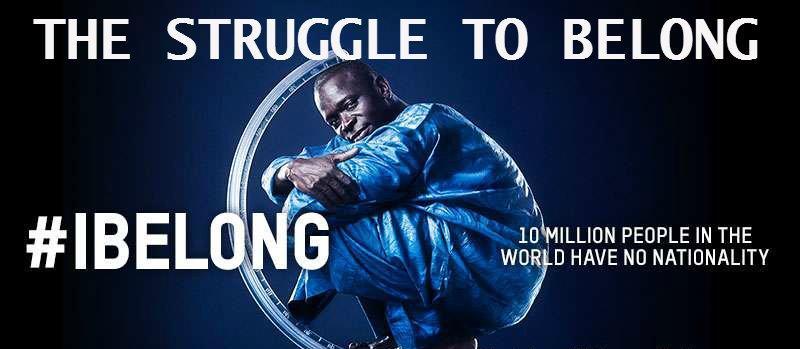By Daisy Nandeche Okoti
Published August 24, 2014

The words ‘gay’, ‘lesbian’ or ‘homosexual’ are not just taboo but merely mentioning them almost always sends people’s blood in East Africa to boiling point.
But that hasn’t stopped people from agitating for the rights of homosexuals and people of other sexual orientations that do not fall in the ‘normal’ bracket. That a film festival dedicated to the gay lifestyle can be publicly held in Nairobi as bodies such as Gay and Lesbian Coalition of Kenya (GALK) exist could be an indication that people of ‘other’ sexual orientation are present in the eastern Africa region. Kenya, like the rest of East Africa, outlaws what is termed as ‘sexual acts against the natural order’. Thus, besides battling rejection and stigma, homosexuals must also contend with the penal code.
RELATED: Here’s How to Guarantee Peace in Kenya!
It was hardly surprising, therefore, when Invisible: Stories from Kenya’s Queer Community was published in 2013 and launched in Nairobi, Kenya, on February 5, 2014.
 As the title suggests, the 116-page book is a collection of short stories, collected and edited by Kevin Mwachiro about the gay, lesbian, bi-sexual, trans-gender and inter-gender people who he says live in Kenya. The 18 writers take turns to tell their own stories using either narratives or poems that take the reader with them on a journey from the time of their ‘discovery’ that their sexual orientation is unnatural, through their lives and personal reflections as they struggle to overcome their homosexual feelings which they perceived unnatural, their decisions to open up to their families about their sexual orientations (for those who have managed to come out so far) and their eventual place in their community among people who know about their sexual orientation.
As the title suggests, the 116-page book is a collection of short stories, collected and edited by Kevin Mwachiro about the gay, lesbian, bi-sexual, trans-gender and inter-gender people who he says live in Kenya. The 18 writers take turns to tell their own stories using either narratives or poems that take the reader with them on a journey from the time of their ‘discovery’ that their sexual orientation is unnatural, through their lives and personal reflections as they struggle to overcome their homosexual feelings which they perceived unnatural, their decisions to open up to their families about their sexual orientations (for those who have managed to come out so far) and their eventual place in their community among people who know about their sexual orientation.
The stories have at least a paragraph or a stanza at the end which is a direct address to the heterosexual community to accept them the way they are and to the homosexuals still living in the closet to accept themselves and lead normal and comfortable lives knowing that they are not alone.
The stories are told with varied tones—aggressive, rebellious, mild—as the narrators negotiate with the reader in attempt to make them see their point. For the outrightly rebellious, however, they do not beg for any mercies or understanding. They simply pen down their stories in a way that says why it is impossible for them to change who they are.
All the 18 stories are written by Kevin Mwachiro, a BBC Radio reporter who says he has “been fortunate enough to simply make sure that the ‘Is’ were dotted and the ‘Ts’ crossed. I have told people that I get great pleasure in telling people’s stories.”
RELATED: Nigerians Win Top Literary Prizes
Mwachiro, who told BBC’s Focus on Africa programme on the evening the book was launched that he himself is ‘gay’, writes that “These are stories told to me by very brave people; very strong people; people whom I admire and respect dearly.”
 Mwachiro says the book “is about a section of society that is denied the right to be themselves” or “the space to tell their stories or even determine how they want to be depicted in the public eye.”
Mwachiro says the book “is about a section of society that is denied the right to be themselves” or “the space to tell their stories or even determine how they want to be depicted in the public eye.”
He further says the published stories were collected from across Kenya from people of varied ages to represent both the young and the old in a way that shows the reader that being gay or lesbian is not confined to a particular region of the country or age-group; and neither is it sparked by certain environments.
This book is written in a simple and persuasive style that does well in negotiating for the place of the homosexuals in the society as well as encouraging other people with a similar sexual orientation to come out publicly. The fact that the book also targets people of all ages and various educational and socio-cultural dispositions also played a role in the choice of diction and style of sharing the stories.
In his introduction to the book, reporter-cum- activist Mwachiro writes that Invisible resulted from the need for homosexuals to tell their stories using their own words other than allowing other people who do not understand them to tell their stories.
The book is lined with direct quotes from conversations among or with members of Kenya’s queer community, as Kevin Mwachiro calls them, a term which he successfully trips off its negative connotation throughout the book. These quotes portray the feelings of the speakers and their attitude towards a world that has rejected them. And just like the main message in the book, the quotes are presented in various tones that subtly communicate the message in the book.
Most of the story writers in the book sign off their accounts anonymously, under fictitious names (Qat Qamunde), single European name (Barbra or Jackson) or initials (K). Apart from one or two, most of the other writers do not give their full names. One reason for this could be that the stories are deeply personal and private. But could this also point to the fact that even in their decision to come out of their closets, somehow, they cannot come out completely because even they recognise there are still reservations for this? Or could it be that all the stories are made up?
RELATED: Book for Tackling Transnational Cultures and Globalisation Published
Invisible: Stories from Kenya’s Queer Community is published by Goethe-Institut’s Contact Zones in collaboration with the Heinrich-Boll-Stiftung and the Gay Kenya Trust and the embassies of the Netherlands and the Federal Republic of Germany and the British High Commission.





